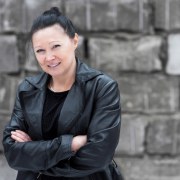Enlightenment 2.0: Pushing the boundaries of science, society and policy
To "make the world a better place" we need to understand how political decisions are taken, not just by politicians or civil servants but also by voters. So how do they do this?
This was the question we asked ourselves as the European Commission's science and knowledge service, the Joint Research Centre. In 2018 we launched the Enlightenment 2.0 initiative to explore the extent to which facts, values, emotions, beliefs and social relations affect political behaviour and decision-making with the aim of understanding these drivers across the political system.
Drawing upon the expertise of scientists from the life sciences, social & behavioural sciences and the arts & humanities, this session will present the first findings from the Enlightenment 2.0 project.
We'll be looking at how cognitive biases, framing debates, storytelling techniques as well as a better understanding values and emotions can assist the science engagement professionals when addressing controversial or politically "hot" issues with their visitors. Importantly, we will also be discussing how these insights can be combined with state of the art citizen engagement techniques.
Session speakers
Ângela Guimarães Pereira has been at the Joint Research Centre of the European Commission since 1992. She leads a project on Citizen Engagement on science for policy. Post-normal science inspires her work on governance of and dialogues about science and technology presents and futures. She authored many peer-reviewed publications, contributing to some books, such as the 2016 “Science on the Verge” CSPO/ASU. Her interests lie in intersections of science with other ways of knowing, such as arts, humanities and making. Her favourite story is Hans Christian Andersen’s “The Emperor’s New Clothes”.
Małgorzata Kossowska is a full professor in psychology, head of the Social Psychology Unit and Center for Social Cognitive Studies in the Institute of Psychology at Jagiellonian University, vice-dean of the Philosophy faculty at Jagiellonian University (2012-2019), member of the National Science Center Council (2012-2018), chair of the National Science Center Council (2018-2020), from 2016 Member of the Polish Academy of Science, Member of the Executive Committee of the European Association of Social Psychology (European Liaison Officer).
Her areas of interest include the cognitive and motivational underpinnings of complex social phenomena (e.g. political beliefs, prejudice, stereotyping), cognitive rigidity and its relationships with problem solving and decision-making. Her work also includes determinants of task engagement (effort invested in cognitive tasks), performance under stress, and human-computer interaction, especially in the context of computer generated multitasking. She has published extensively.
Lecturer in Applied Linguistics
Universidad Politécnica de Madrid
Paula Pérez Sobrino is a lecturer in Applied Linguistics at Universidad Politécnica de Madrid (Spain). She was a Marie Curie post-doctoral fellow at the English Language Department at the University of Birmingham (UK) from 2015 to 2017, where she led the 2-year project “Exploring Multimodal Metaphor in Advertising” (www.multimodalmetaphor.com) with the support of the European Commission. Her main areas of interest are framing, metaphor and metonymy in a wide range of genres such as advertising and political communication. She adopts a mixed-methods approach of qualitative enquiry and experimental research to investigate (creative) meaning-making practices of people from different cognitive, linguistic, and cultural backgrounds. She has recently published her first monograph 'Multimodal Metaphor and Metonymy in Advertising' (John Benjamins 2017) and is preparing a new monograph for 2020, "Unpacking Creativity: the role of figurative communication in advertising" (Cambridge UP).
As the Project Leader of the Enlightenment 2.0 initiative at the European Commission's Joint Research Centre, Laura Smillie with the support of renowned experts will present the key findings from project.




